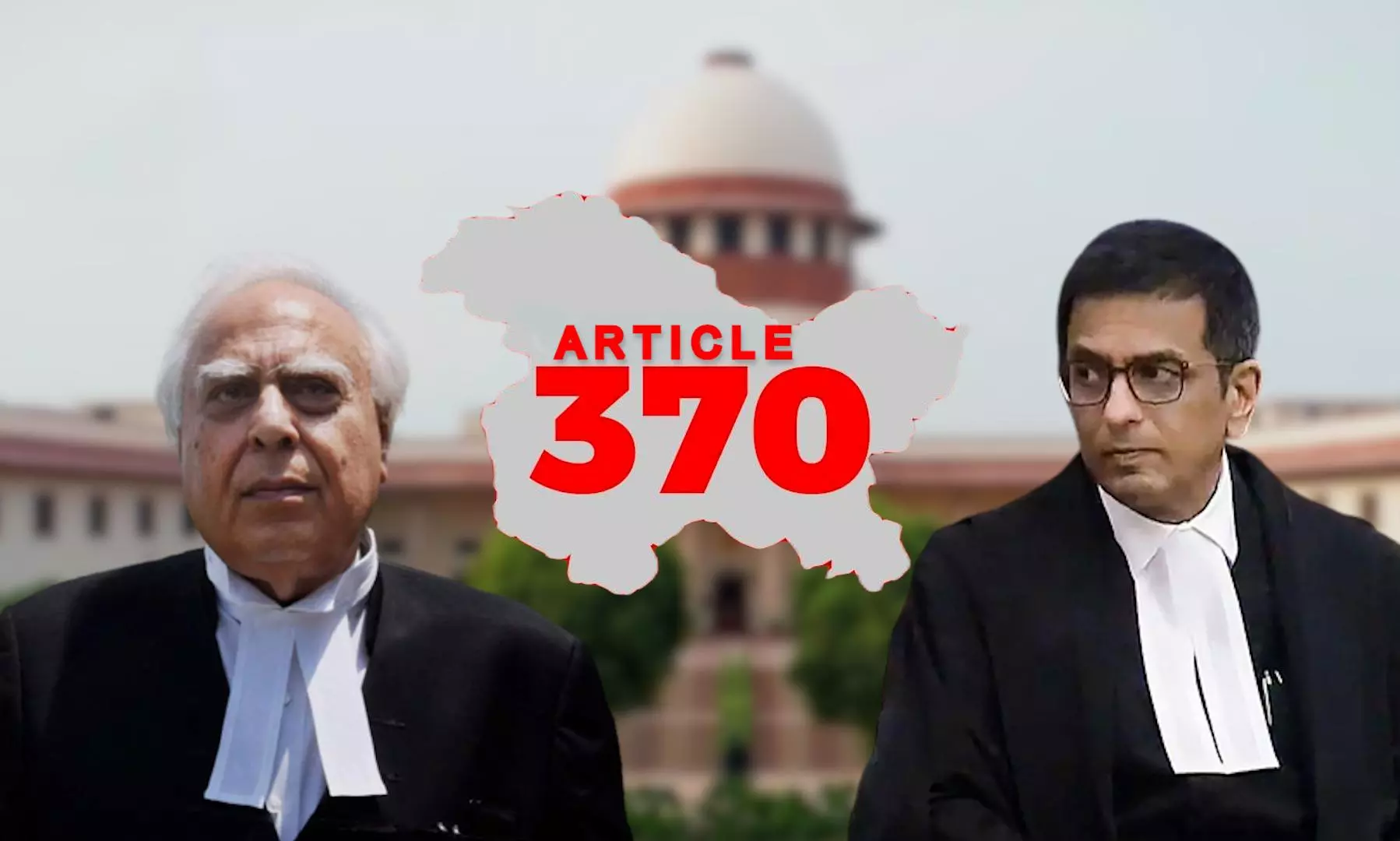
SC questions Article 370’s immunity from amendments, Sibal says no provision in Constitution
text_fieldsNew Delhi: The Supreme Court on Thursday delved into the legal intricacies surrounding Article 370, which pertains to the status of the former state of Jammu and Kashmir (J&K). The court questioned whether the changes made to Article 370 in 2019 were beyond the amending powers of Parliament, effectively creating a new category of provisions immune to amendment.
The Constitution Bench, led by Chief Justice of India D Y Chandrachud, heard the arguments presented by Senior Advocate Kapil Sibal on behalf of the petitioners. Sibal contended that after the Constituent Assembly for J&K ceased to exist in 1957, there was no constitutional process left to amend Article 370, and any changes could only have been made through a political process.
The Chief Justice sought clarification on how the constitutional machinery would function for amending Article 370 without a Constituent Assembly. Sibal responded that the Constitution of J&K explicitly stated that no such Bill could be introduced in the legislature, which implies that Article 370 is permanent.
The judges further probed whether this implied that Article 370, unlike other provisions of the Constitution, could never be amended. Sibal's response emphasized that there was no constitutional provision under which such an amendment could be carried out.
Justice Kaul raised the point that the Constitution is a living document and questioned whether there was no mechanism whatsoever to change it, even when there is a widespread desire for change. He compared it to the principle of Basic Structure, which is considered unamendable. Sibal argued that Article 370 is not a new category like Basic Structure; rather, it is a constitutional compact between one sovereign and another, unique to J&K.
The Chief Justice expressed concern that regarding Article 370 as a compact between sovereigns could lead to its override by the sovereign of the succeeding state, potentially causing constitutional issues. Sibal responded that there is a procedure in place to address any changes to Article 370, ruling out any such danger.
Sibal also criticized the procedure followed by the central government to amend Article 370 and reorganize J&K into the Union territories of J&K and Ladakh. He argued that the government's approach was not in line with the constraints of the Constitution, as the legislative assembly was dissolved without proper consultation and consent.
The petitioners contended that only the Constituent Assembly of J&K could have taken a decision on Article 370, and Parliament could not assume that role. They expressed concern that accepting the government's actions in this case might set a precedent for undermining the Basic Structure of the Constitution.
The hearing on this matter will continue on August 8.























